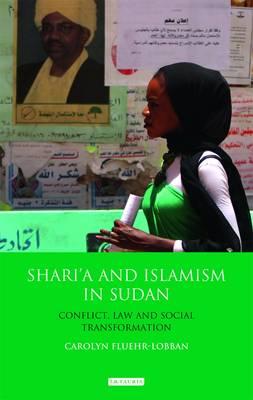Overview
After the 1989 Islamist coup in Sudan, the National Islamic Front under General Omar al-Bashir and Dr. Hasan Turabi attempted to institutionalise, codify and implement Shari'a law throughout the country. However, by 2005, with the signing of the Comprehensive Peace Agreement ending 22 years of civil war, the government agreed to halt its policy of Islamisation in the South. Shari'a and Islamism in Sudan explores how Sudanese society has been transformed by this period of implementation of Islamic Law, and furthermore asks, what are the continuing effects of this policy? And what are the implications of the Peace Agreement for the future of Islamist politics in Sudan and of the country? With data drawn from Carolyn Fluehr-Lobban's most recent research in the region, this book is a vital and unique examination of the nature of the Sudanese state and society, offering invaluable insight for all those interested in the politics, society, and the future of Sudan and the nature of political Islam.
Full Product Details
Author: Carolyn Fluehr-Lobban
Publisher: Bloomsbury Publishing PLC
Imprint: I.B. Tauris
Volume: 30
Dimensions:
Width: 13.80cm
, Height: 3.60cm
, Length: 21.60cm
Weight: 0.566kg
ISBN: 9781848856660
ISBN 10: 1848856660
Pages: 360
Publication Date: 10 July 2012
Audience:
College/higher education
,
Tertiary & Higher Education
Format: Hardback
Publisher's Status: Out of Print
Availability: Awaiting stock

Reviews
'Shari'a, Islamism and Arabism have been at the center of the national identity crisis that has afflicted Sudan with the civil wars that have ravaged the country since independence. For decades, Carolyn Fluehr-Lobban has made this the focus of her research and scholarship. What is remarkable about Professor Fluehr-Lobban's work is the way she combines scholarly objectivity with respect and compassion for the country and its people. Shari'a and Islamism in Sudan draws an important qualitative distinction between the standard version of Islam and Shari'a, for which the author professes deep respect and admiration, and their radicalized version that has been at the heart of devastating conflicts, social upheavals, and the consequential threat to the unity of the country. This book is a must read for all those concerned with the past, present and prospective future of Sudan.' Dr Francis M. Deng, Advisor to the UN Secretary-General on the Prevention of Genocide and former Sudanese Minister of State for Foreign Affairs 'Carolyn Fluehr-Lobban's new book documents, assesses and analyzes a very important period in the life of Sudan, the Sudanese and their ruling regimes as Islamism has laid a claim to religion and tried to impose its own version of Islam through means of manipulation, mobilization and the coercive power of the state. Carolyn has spent many months in the years 2007-10 in Sudan researching these developments and has written a penetrating and comprehensive study of this unique situation.' Dr Abdullahi A. Gallab, Assistant Professor, Africa and African-American Studies, Arizona State University 'Using her substantial experience in Sudan, Professor Fluehr-Lobban provides a highly valuable analysis of contemporary Shari'a in Sudan, going beyond stereotypes to examine the current realities of Shari'a, how it is implemented and how it has changed over the past two decades. Her book will be an invaluable addition to dialogue on the future of Sudan during a critical time in the country's history.' Jon Temin, Senior Program Officer and Sudan Team Lead, United States Institute of Peace
Author Information
Carolyn Fluehr-Lobban is Professor Emerita of Anthropology and Joint Doctoral Program in Education at Rhode Island College and Adjunct Professor of African Studies at Naval War College. Her research topics cover Islamic law and society, women's social and legal status in the Muslim world, human rights and cultural relativism, ethics and anthropology and comparative studies in law and society.




